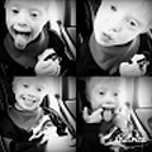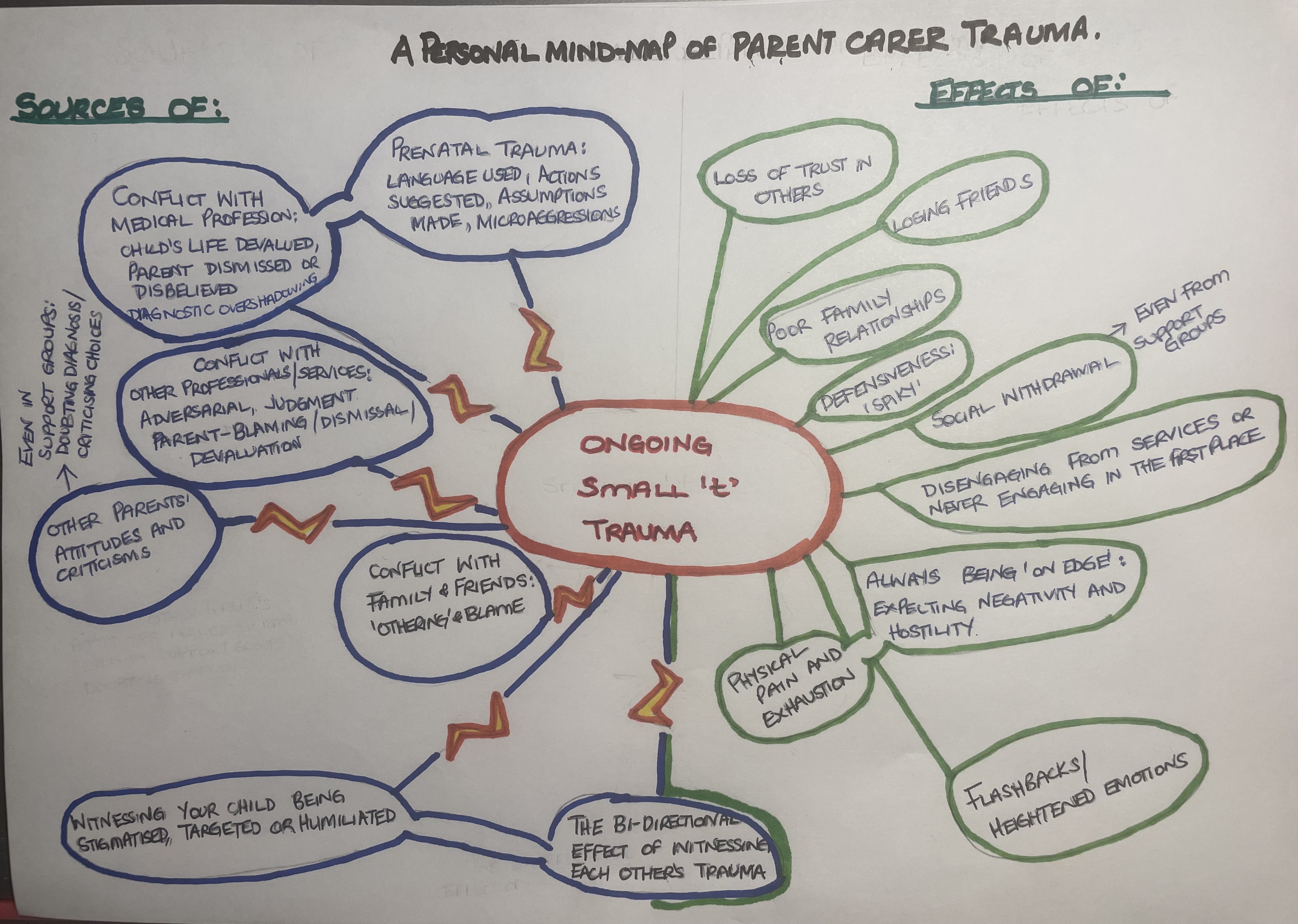Parent Carer Trauma – A Personal Experience (Part One)

Kerry Fender
Down’s Syndrome, my family and me – one mum’s account of family life with an extra chromosome.

This month’s blog offering is going to be messy, I’m afraid. It’s about Parent Carer Trauma, a subject that is difficult for me to think about. In fact, I have tried to write about this several times in the past but have always been unable to push the words out. Instead, I push my notes away, with tears streaming down my face, and write about something else instead.
I first began to wonder if I had been traumatised by my experiences as a parent carer seven years ago. We had recently moved back to the area where we had lived when our eldest two children were in Primary school. I was walking across a piece of common land behind the Infants school my eldest went to and saw that the council had fenced off a portion of it for the use of the school.
At the sight of those railings, I was jolted backwards in time, seeing that same patch of land cordoned off with bunting stretched between garden canes for Sports Day. Suddenly I’m standing there with tears pouring down my face, my heart is pounding like a jackhammer, my stomach churning. A wave of white-hot anger rushes over me, propels me home like a jet engine.
I want to scream and rage at every single parent, every single teacher, who was there that day and demonstrated their contempt for my child so openly. I want to shake them all, slap and slap them until they feel as bad as me and my boy do as I carry him injured and sobbing from the track under the weight of their silent judgmental stares.
This wasn’t a flashback. Or was it?
Although in my head I was aware that this was just a memory, my body was reacting as though the incident were happening again in the present – the hammering heart, the dry mouth, the tense, twitching muscles and the feral blast of anger. The tears that I did not cry at the time because I was too angry and too proud.
When I got home I tried to talk to my partner about it, questioning whether this was a trauma response. He dismissed the idea. His advice? ‘You mustn’t dwell on these things.’ That felt unfair. I don’t dwell on these things. Most of the time I don’t think about them at all. I deal with what is in front of me day-to-day. I am largely positive about my life, and content with it.
To be so suddenly ambushed by those memories and the very visceral emotions they brought with them was quite a shock. But to call it trauma? Perhaps that was a bit melodramatic. After all, my child’s condition was not life-threatening, he’d never had surgery or even been in hospital, there was no horrific accident in our past, no violence or domestic abuse and we were not caught up in a war zone. I felt ashamed to have even asked the question. To be ambushed by ‘feelings’ most probably wasn’t a sign of trauma, it was a sign that I was over-sensitive, self-indulgent, self-pitying even -- a ‘mard-baby’ as my mother would have said, who just needed to put these things behind her and move on.
Then, last year, I came across the Parent Carer Trauma Discussion Paper.
I read it with interest to see if I was right that the experiences of the Parent Carer can leave them traumatised, but, in truth, I did not really expect that any of it would apply to me. But as I read on, I saw that, yes, it did apply to me. There doesn’t have to be a big, horrific or life-threatening event to cause trauma. It can be caused by the cumulative effects of repeated or ongoing stressors: the battles, the stigma, the microaggressions, and the day-to-day difficult realities of long-term caring for a disabled child, the so-called small ‘t’ traumas, which, added together with little time between to recover from one before the next one comes along, can result in ‘psychological weathering’ or even something known as ‘Prolonged Duress Stress Disorder’.
I felt vindicated. I’m not an over-sensitive, self-pitying, mard-baby. I am a mother carrying hidden, un-guessed-at trauma who somehow keeps putting one foot in front of the other every day with a smile on her face. I don’t need to ‘put these things behind me and move on’ because that’s exactly what I’m already doing and have been doing this quarter-century past, because I’ve had no choice but to do that, in order to ensure that my children’s needs were met and that we made as good and happy a life as we could. If those traumas occasionally jump out and ambush me that’s not surprising because they have been languishing, unprocessed, at the bottom of my subconscious for so many years.


